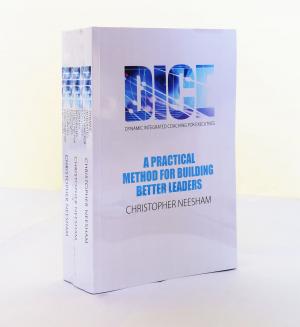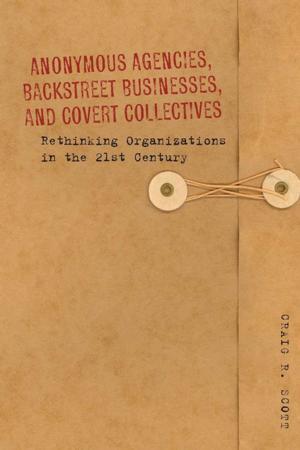Omoluwabi 2.0
A Code of transformation in 21st century Nigeria
Nonfiction, History, Africa, Business & Finance, Management & Leadership, Leadership, Management| Author: | Adewale Ajadi | ISBN: | 1230000014404 |
| Publisher: | Bookcraft | Publication: | August 22, 2012 |
| Imprint: | Language: | English |
| Author: | Adewale Ajadi |
| ISBN: | 1230000014404 |
| Publisher: | Bookcraft |
| Publication: | August 22, 2012 |
| Imprint: | |
| Language: | English |
In Omoluwabi 2.0, Adewale Ajadi lays out a new way of organising and transforming, organisations, countries and continents, based on the Yoruba principle of Omoluwabi, updated for the 21st century.
"There are not many original thinkers who dare to explore new territories with creative mental tools and attentiveness to details and still come up with a reader-friendly book. Adewale Ajadi's book comes with freshness. Omoluwabi 2.0 is long overdue and it should fill the knowledge gap created by an apparent lack of codification and wide dissemination of imo ijinle (deep knowledge)"
- Kole Odutola; Lecturer at the University of Florida, Author of Diaspora and Imagined Nationality
"There have been ideas about two publics, the formal and informal worlds in Africa and their contradictory dynamics. Other have framed it as disorder but no one has pointed the way. As it was we were doomed to "engineered solutions". Omoluwabi 2.0 comes with a torrent of "meaning-making systems" in a stream of post-modern solutions to the challenges of the 21st century inspired by an abiding creativity in Africa's complexity and history."
- Sylvester Odio Akhaine; Member of the Guardian Editorial Board
"This is a very important book that needs a broad readership. First for pointing the way, showing us the possibilities of codifying our customary approaches, and most importantly, embracing what is now the "informal". This is one of the first real attempts by an African in a long while to reclaim ourselves, to really think of an African modernity rooted in the hard-won lessons and social processes in our past. Omoluwabi 2.0 is a gift to Nigeria and the continent."
- Martin Kimani; Director, IGAD Conflict Early Warning and Response Mechanism (CEWARN)
"This is an intriguing and versatile effort to bring together authentic African ideas and approaches to change and transformation. it is a welcome contribution to a growing discourse, bringing together personal and communal narratives into a compelling reflection on leadership, change and transformation."
- Gladwell Otieno; Executive Director, Africa Centre for Open Governance (AfriCOG)
In Omoluwabi 2.0, Adewale Ajadi lays out a new way of organising and transforming, organisations, countries and continents, based on the Yoruba principle of Omoluwabi, updated for the 21st century.
"There are not many original thinkers who dare to explore new territories with creative mental tools and attentiveness to details and still come up with a reader-friendly book. Adewale Ajadi's book comes with freshness. Omoluwabi 2.0 is long overdue and it should fill the knowledge gap created by an apparent lack of codification and wide dissemination of imo ijinle (deep knowledge)"
- Kole Odutola; Lecturer at the University of Florida, Author of Diaspora and Imagined Nationality
"There have been ideas about two publics, the formal and informal worlds in Africa and their contradictory dynamics. Other have framed it as disorder but no one has pointed the way. As it was we were doomed to "engineered solutions". Omoluwabi 2.0 comes with a torrent of "meaning-making systems" in a stream of post-modern solutions to the challenges of the 21st century inspired by an abiding creativity in Africa's complexity and history."
- Sylvester Odio Akhaine; Member of the Guardian Editorial Board
"This is a very important book that needs a broad readership. First for pointing the way, showing us the possibilities of codifying our customary approaches, and most importantly, embracing what is now the "informal". This is one of the first real attempts by an African in a long while to reclaim ourselves, to really think of an African modernity rooted in the hard-won lessons and social processes in our past. Omoluwabi 2.0 is a gift to Nigeria and the continent."
- Martin Kimani; Director, IGAD Conflict Early Warning and Response Mechanism (CEWARN)
"This is an intriguing and versatile effort to bring together authentic African ideas and approaches to change and transformation. it is a welcome contribution to a growing discourse, bringing together personal and communal narratives into a compelling reflection on leadership, change and transformation."
- Gladwell Otieno; Executive Director, Africa Centre for Open Governance (AfriCOG)















